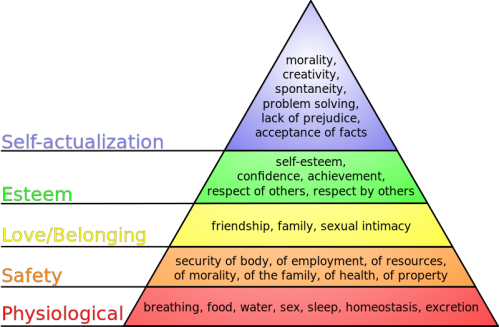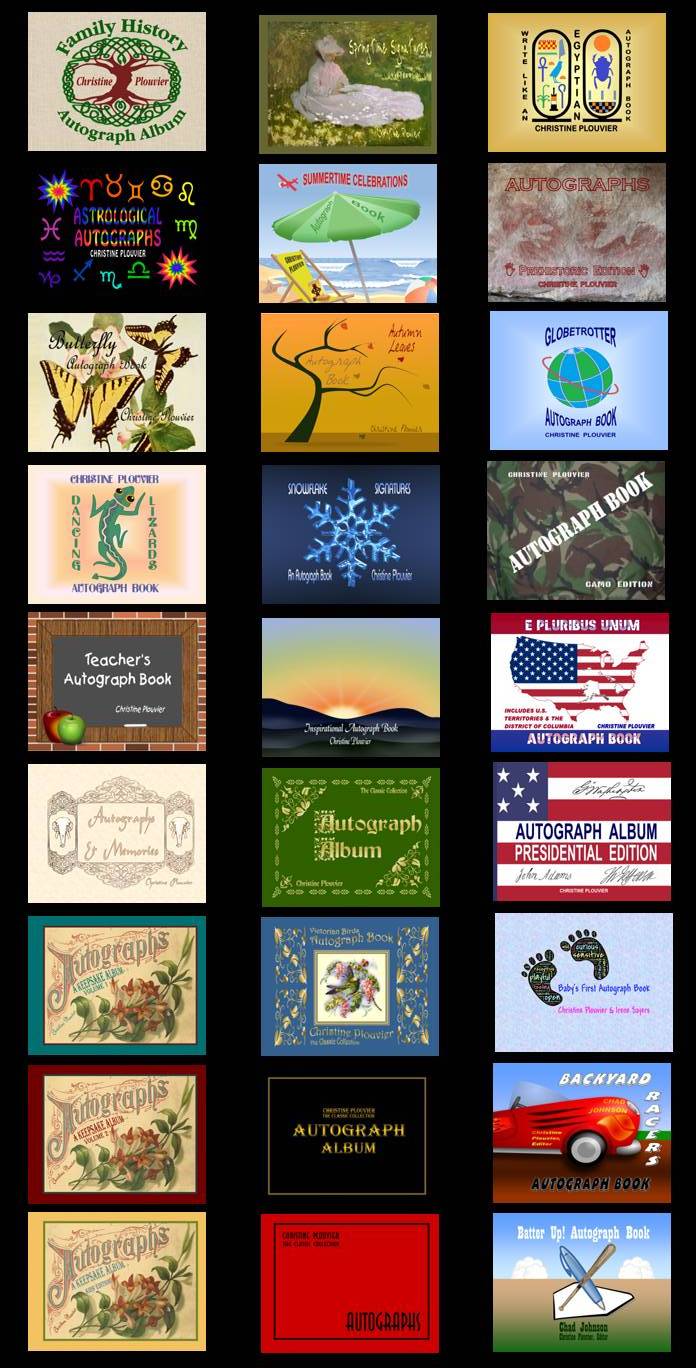Those who practice the other Fine Arts all have long traditions as independent artists who are free to produce, promote and sell their own works. Authors, on the other hand, despite their being Artists, have traditionally been shackled to the pursuit of approval from others, in order to publish their works of Art.
The practice of seeking agents and contracts from publishers grants control over artistic output and income that other artists would not tolerate. But it is authors who provide publishers with their means of making a living, by hiring them to be the middlemen between the producer and the consumer (hiring an agent merely adds another middleman), an approach that dates back to when few could afford to own and operate a printing press.
 Personally affordable computer technology has nullified that anachronistic hegemony, but even in the age of the Indie Author-Publisher, too many writing Artists are willing to concede to the demands of retailers who insist on selling books as if they were baskets. Authors are expected to allow their works of Art to be used by retailers as “loss leaders,” by offering their work for a pittance or free of charge – and it is authors who are forced to carry the loss.
Personally affordable computer technology has nullified that anachronistic hegemony, but even in the age of the Indie Author-Publisher, too many writing Artists are willing to concede to the demands of retailers who insist on selling books as if they were baskets. Authors are expected to allow their works of Art to be used by retailers as “loss leaders,” by offering their work for a pittance or free of charge – and it is authors who are forced to carry the loss.
The revolution in publishing affords writers a golden opportunity to take back our Art from the vested interests in publishing and sales who have misappropriated and mislabeled it as a Craft commodity, for which, if we manufacture it “right,” they will deign to reward us, in their own good time, and at the level of income they deem that we deserve.
Writing is an Art, not a Craft.
The purpose of Art is communication, which is intangible, and the appreciation of which is subjective. The purpose of a Craft is to produce a tangible object, which serves a specific purpose, and can be evaluated objectively on its potential and actual function.
The techniques for making a craft can be learned by anyone with an intact nervous system, the necessary limbs and digits, sufficient dexterity, and the right tools and materials. The craft worker can then set up a stall in the market and be reasonably sure to find buyers for everything the worker has made. There will always be someone out there who needs a new cap, cup or coffin, and who will pay to own it.
 The production and selling of art is different. Everyone with an intact nervous system, the necessary organs, a message and the means to communicate it can learn to do so; nevertheless, not every artist who writes, paints, sculpts, acts, sings or plays a musical instrument can be sure that the message in the writing, picture, statue, performance or music
The production and selling of art is different. Everyone with an intact nervous system, the necessary organs, a message and the means to communicate it can learn to do so; nevertheless, not every artist who writes, paints, sculpts, acts, sings or plays a musical instrument can be sure that the message in the writing, picture, statue, performance or music  will find a receptive patron who will pay for it. An artist may be very effective at communicating “red,” but if the current style is “blue,” or the market is located in a community of persons who have red-green color blindness, no one will pay to own the artist’s work.
will find a receptive patron who will pay for it. An artist may be very effective at communicating “red,” but if the current style is “blue,” or the market is located in a community of persons who have red-green color blindness, no one will pay to own the artist’s work.
At this time, a manual worker who masters a tangible craft will enjoy success. But an artist who masters the intangible art of writing may never enjoy success as a great storyteller, bestselling novelist or award-winning author.
Communication principles govern Art.
 Writing style gurus and publishing gatekeepers insist that our success as authors is all up to our following their craft-based rules. But until we can stop accepting the inappropriate imposition of tangible craft rules on our intangible art, we’re going to be miserable, and we’re not going to make any headway towards achieving success (however each of us may define it).
Writing style gurus and publishing gatekeepers insist that our success as authors is all up to our following their craft-based rules. But until we can stop accepting the inappropriate imposition of tangible craft rules on our intangible art, we’re going to be miserable, and we’re not going to make any headway towards achieving success (however each of us may define it).
The principles of effective written communication are relatively few and simple:
Excellent spelling.
Good grammar.
Sufficient correct punctuation for signage on the path to meaning.
Thorough research.
Understanding of literary conventions.
Love for language and loyalty to its complete lexicon.
Writing by inspiration, rather than controlling the performance of the tale.
I call these The 7 Reasonable Rules of Writing. By internalizing and following these fundamental rules, writers can confidently produce and present to the world books that are worth reading: those which clearly communicate universal truths in the kind of enlightened entertainment that should characterize a work of Art.
As technology frees Indie Authors from bondage, our concomitant task is to communicate that it is we, the artists who create with words (and not the gurus and gatekeepers in publishing and sales), who have the right and responsibility to help the reading world achieve the self-actualization that gives meaning to the work of living.
Writers, their inspiration and motivation suffer, because Art and Craft have been confounded. A craft can be carried in a basket. Art must be carried in the heart.
Writers! Take our Art out of the Craft basket: Communicate!
…
* Adapted from the motion picture Cool Hand Luke.























Christine, I like your “rules” far better than the “rules” I keep reading on the internet. Is there a way you could send these to the head of the Literary Powers That Be, and we can sign a petition to get them put into effect? Awesome post! 😀
LikeLiked by 1 person
Thanks, Rachel! But I don’t think the Power in the Ivory Tower (PIT) would adopt those rules. We’ll have to overthrow it, and negotiate from a position of strength. A great grassroots movement has sprouted up, but the PIT is spraying herbicides. Our turf needs constant fertilizing, to encourage it to keep spreading – so I wrote an anthem! All great movements have had anthems! 😉
LikeLiked by 1 person
Ah, this is true. Just let me know when out brigade will be meeting next and you can teach me the lyrics then. We can record it and put it on YouTube so that we can spread the word. 🙂
LikeLiked by 1 person
Glad to see you sign up! You can tell your recruits that the “Authors’ Anthem” has been posted. (When you click on the image, it should link to a PDF copy that can be tacked to virtual telephone poles.) It shouldn’t be too hard for them to learn it, on the way to the meeting. Many will recognize the tune: it’s that revolutionary number from Le Mis, a real toe-tapper. A catchy marching song is important, at a time like this. We just need to find a public domain midi for the YouTube soundtrack. 😉
LikeLiked by 1 person
Excellent! You did a fine job with the lyrics! Now I’ll bring the cookies and lemonade to the first meeting. 🙂
LikeLiked by 1 person
Great post, Christine. Thanks for sharing.
LikeLiked by 1 person
Thank you, Annette! As Ben Franklin said, “We must all hang together, or assuredly we shall all hang separately.” Good luck with your new Indie!
LikeLike
Reblogged this on Chris The Story Reading Ape's Blog.
LikeLike
Reblogged this on mira prabhu and commented:
“Writing is an Art, not a Craft.” Read on…Christine Plouvier makes some excellent points here…
LikeLiked by 1 person
Thank you. All of us are searching for our true identity, and I hope that what I can offer here will help others move with more confidence towards that goal.
LikeLike
Very interesting article, give me a lot to think about. In my own opinion craft and art aren’t mutually exclusive, and I’ve found the more I work on the craft of my writing, the better it is artistically. The key for me is to listen to my own artistic instincts instead of writing the way someone else tells me to write.
LikeLiked by 1 person
I emphatically agree that following one’s own artistic instinct (inspiration, Muse) is the key to writing well. Perhaps the application of the word “craft” to the art of writing originated in mistaken identity: the difference between “craft” and “draft” is only one letter, and the words also rhyme. What writers do is draft sentences and paragraphs that express meaning, and the better draftsmen they become, the more artistic their expression becomes. More writers need to exercise faith in their artistic ability, instead of believing that the art of writing can be developed via craft-based construction formulae.
LikeLiked by 1 person
Exactly! Formulae is for summer blockbusters and prime time sitcoms that are designed to sell tickets and ad space. If you want to say (write) something new and distinct, you have to get out of the well worn ruts of popular entertainment.
LikeLiked by 1 person